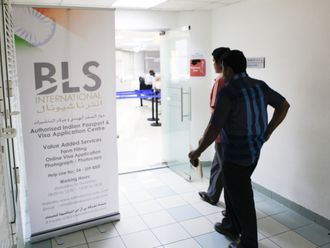The creeping spread of bird flu has darkened the mood on Asia's bearish jet fuel market, but traders are not yet ready to bet on a collapse in prices if a pandemic cripples air travel in the region.
Jet fuel swap spreads for 2006 have held relatively firm over the past few weeks, even as the deadly H5N1 strain spreads from Asia into Europe, Singapore market sources say.
But oil traders are studying all the angles, determined not to be caught off guard as they were by the Severe Acute Respiratory Syndrome.
The Severe Acute Respiratory Syndrome sent jet fuel values spiralling down and handed nearly $100 million in losses to one bank's trading team.
"I don't think anybody has been putting a bird flu strategy on, not yet," said one distillate trader with a major investment bank in Singapore.
"But this bird flu story is clearly bearish forward distillates, and forward economic activity in general."
A series of factors have raised the alarm this week, from a report that China will close its border if it finds a single case of human-to-human transmission, to a possible outbreak in India, to the mounting death toll in Southeast Asia.
The World Health Organisation has said it might only be a matter of time before the H5N1 strain develops the ability to pass easily from human to human, which could kill millions in a flu pandemic that experts say the world is overdue for.
While that would almost surely deal a heavy blow to oil demand, particularly for jet fuel, traders are wary of taking on any speculative positions given the potential to lose millions in an unpredictable market.
As tourists deserted Asia and airlines cut flights at the height of the SARS panic in April 2003, the premium of jet fuel prices to diesel the regrade spread, the best measure of the jet fuel market's strength plunged to minus $3.50 a barrel.
That caught many traders unprepared, including Bank of America, which reported an $89 million loss on its 2003 commodity trading portfolio associated with the SARS outbreak.
The US bank subsequently shut down its oil trading operation in Singapore.
But forward prices thus far have held relatively firm at around $5.85 throughout 2006.
Still, traders say speculative fears over the influenza has weighed on a market already in the doldrums due to hefty stocks and low demand in Japan, where kerosene a product very similar to jet fuel is used widely for home heating in the winter.
The November regrade fell to $3.10 a barrel on Wednesday, its weakest level in over two months. Japan's commercial kerosene inventories are 7 per cent above their seasonal norm and higher than at any point last year, industry data showed last Wednesday.
"Jet was already well on the way down before the latest outbreak in China," said the investment bank trader.
Oil dealers are particularly alert for any signs that airlines, many of whom hedge their fuel costs on the jet fuel swaps market, start selling off their positions.
But market sources and industry officials say this is not happening yet, even as some airline stocks in the region were hit by the bird flu scare.
"We are not concerned about this (bird flu pandemic), and we will keep operations as per normal," said an official at Japan Airlines.
All Nippon Airways, Cathay Pacific Airways, Air China Ltd and Thai Airways International PCL said they had not changed their hedging levels as well.










